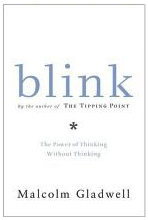 Neil Gaiman is a thorough but interesting descriptor of setting and characters' thoughts. I watched the miniseries of Neverwhere that Gaiman wrote for the BBC in '96. Even ignoring the ambivalent acting, the Neverwhere TV series was flat without the constant inner monologues and strange, sometimes disgusting details.
Neil Gaiman is a thorough but interesting descriptor of setting and characters' thoughts. I watched the miniseries of Neverwhere that Gaiman wrote for the BBC in '96. Even ignoring the ambivalent acting, the Neverwhere TV series was flat without the constant inner monologues and strange, sometimes disgusting details.In the novel, Gaiman created a world of life and death existing beneath our relatively safe one. He has a talent for writing repulsive gore, sympathetic and awkward heroes, and twisty adventures. I love tales of salvific journeys and renaissance revenge. There is something primal about the modern reader's yearning for medieval stories of violence and mystical experiences.
Neverwhere is not just empty enjoyment. It prompts some pondering over our cities' real underworlds. The London Below in this novel comprises the forgotten, the invisible, the outcasts, who normal people from London Above can't see. Gaiman's protagonist responds personally to an injured girl from London Below while his fiancee walks past in a hurry to dinner. Thought he fights and sojourns, and often whines and seems pathetic, Richard becomes the hero of the novel after this one small decision.

























.JPG)






